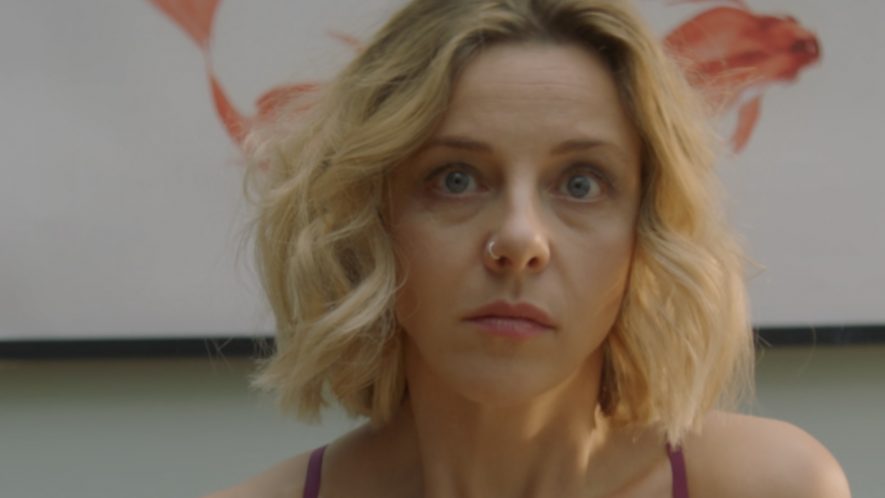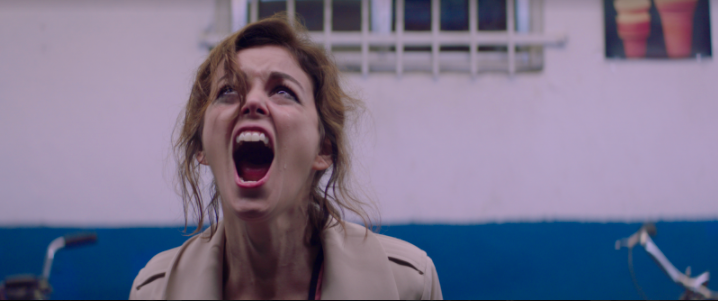An interview with Aqsa Altaf provides insight into her creative process, the significance of having diversity in film, her vision on film school and the importance of directorial practice by doing instead of hypothesizing. As Altaf wisely puts it “no one can teach you to become an artist, the burden is on you.” She has proven to be great at this practice; her film ‘One Small Step’ was shortlisted for the BAFTA Student Film Awards in 2018 and has screened at over thirty festivals. Altaf is currently working with Disney on a live action short film about Eid, hoping to raise awareness for many different cultures and religions.
For One Small Step, what was the emotional process like going from conception of idea to filming?
I was inspired by a real story, a character in an article by the New York Times. So, I searched for a writer who could objectively adapt the story. I think that what I emotionally brought into the material was my own personal experience as a Pakistani Sri Lankan immigrant in Kuwait; we were treated like second class citizens. Certain people coming from non-privileged backgrounds have to make difficult choices from a young age. People forget that being a child is a privilege; it is a privilege to live out your childhood. When I was young, I worked three jobs for four years straight. When I left for America, it was such a difficult choice. I felt as if I was leaving my family behind, because they were relying on me, and I knew I had to do that in order to come back and save them. But to make that decision and say: I have to choose this otherwise nothing else would matter in the long run is a part of growing up. It’s a bittersweet, heartbreaking moment. In One Small Step, when she has to choose between her sister and going on the field trip it’s a very small moment that represents that idea, growing up. You have to kill a part of yourself to grow into something else.
This year’s Black Lives Matter movement has put pressure on all creative industries to increase representation, not only for black people but, for people from all across the world. How do you think the industry can go about enforcing more representation in film?
I know people from back home who are talking about this movement in Kuwait; people who have taken their worker’s passports, and to me it’s confusing because they are just hopping on a trend whilst ignoring it in their own backyard. People are talking a lot more than they used to about modern slavery, and about what is happening in Gulf states. The downside is that people are hopping on a trend but it’s good as it’s exposing a truth that people have to face. It’s almost like putting a mirror in front of them. How can I do this [talk about the trend] whilst I am also perpetuating it i.e. taking workers passports and not paying them minimum wage.
It is what I want to focus on in telling stories. I am working on a TV show that touches on modern day slavery in Gulf states. It’s a fight that I want to continue talking about because of my personal experience with it. My dad being a construction worker and my mom being a maid in Kuwait. My hope with this movement is that it’s putting cracks into the hypocrites’ identity because by looking in the mirror, they realize they are being hypocritical.
Who do you draw inspiration from?
Shah Rukh Khan, any Southeast Asian you talk to will find him a huge inspiration because he came from nothing and made it big. Everyone who had nothing looked up to him but it felt as if it was within certain parameters, if you are not in India then you probably would not make it, you also did not fit into Western media so everything felt like escapism. It was all a ‘one day maybe’ idea. That’s why representation is so important. If you do not feel like you belong, then you feel like you are not worth fighting for [yourself]. I knew so much about Thanksgiving before I even came to the US and no one here [in the US] knows about Eid. I am working on a short film with Disney about Eid and when we were scheduling a meeting, someone mentioned that we should avoid a specific date because it’s Eid, and that just shows that by talking about it you bring awareness to it.
Part 2 Interview: Aqsa Altaf’s advice
As a filmmaker, how do you try to differentiate yourself?
I was in a different bubble before coming to LA, and now that I am in LA, I am almost in the LA bubble and I can switch between the two worlds and understand where both views are coming from. I want to achieve a type of universality in my films where someone that does not speak English can still understand my film just by watching it. My parents who do not speak English are my benchmark — if they can understand it then I did my job as a filmmaker.
Following the explosion in user-generated content and platforms – how does this affect the landscape for traditional filmmakers, and traditional content mediums?
It is something I became worried about as a filmmaker; the demand for theatre going down. It became even more inaccessible due to COVID-19. If [Christopher] Nolan has trouble distributing his film; we [younger filmmakers] have no hope. It is really sad but it is part of evolution; TV has become so global and big in the last five years. There are so many types of formats and distribution platforms, as a filmmaker it is about being true to yourself. Asking yourself what the best form to tell your story is and how long do you need to tell the story. I think the future for theatre will be saved for the best filmmakers out there and you will have to earn your way, either through the TV or festival route, to get there.
Aqsa Altaf’s short film ‘One Small Step’ is streaming now on Argo.












